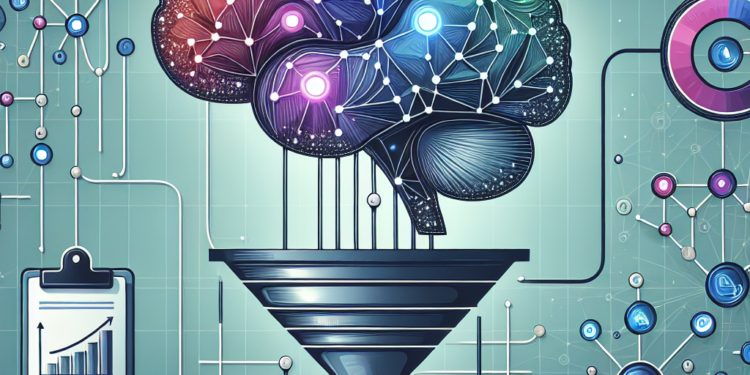In today’s highly competitive business environment, generating leads is crucial for any organization looking to grow and expand its customer base. Lead generation is the process of identifying and attracting potential customers who have shown interest in a company’s products or services. Traditionally, lead generation has been a time-consuming and labor-intensive task that involved manual prospecting, cold calling, and email campaigns. However, with the advent of artificial intelligence (AI) technologies, businesses now have access to advanced tools and strategies that can automate and streamline the lead generation process.
AI-powered strategies for lead generation leverage machine learning algorithms and natural language processing to analyze customer data, predict buying behavior, and personalize marketing campaigns. By leveraging AI technologies, businesses can efficiently target the right audience, engage with potential customers in a more personalized manner, and ultimately drive more conversions and sales. In this article, we will discuss some of the key AI-powered strategies that businesses can use to optimize their lead generation efforts.
1. Predictive Lead Scoring
One of the key challenges in lead generation is identifying high-quality leads that are more likely to convert into customers. Predictive lead scoring is an AI-powered strategy that uses machine learning algorithms to analyze customer data and predict the likelihood of a lead converting into a customer. By analyzing factors such as demographics, browsing behavior, and engagement with marketing campaigns, predictive lead scoring can help businesses prioritize leads and focus their efforts on those with the highest potential.
Predictive lead scoring allows businesses to allocate resources more effectively and target leads that are most likely to convert. By streamlining the lead qualification process, businesses can improve their sales efficiency and drive more revenue. Additionally, predictive lead scoring can help businesses identify trends and patterns in customer behavior, allowing them to continuously optimize their lead generation strategies.
2. Personalized Marketing Campaigns
Personalization is key to successful lead generation, as customers are more likely to engage with marketing messages that are tailored to their specific needs and preferences. AI-powered technologies can help businesses deliver personalized marketing campaigns at scale by analyzing customer data and segmenting leads based on their behavior and preferences.
AI technologies can analyze a customer’s browsing history, purchase behavior, and interactions with marketing campaigns to create personalized recommendations and offers. By delivering relevant and timely content to leads, businesses can increase engagement and drive more conversions. Personalized marketing campaigns can also help businesses build stronger relationships with customers and increase brand loyalty.
3. Chatbots and Virtual Assistants
Chatbots and virtual assistants are AI-powered tools that can automate customer interactions and provide instant support to leads visiting a company’s website. Chatbots use natural language processing to understand customer inquiries and provide relevant information or assistance in real-time. By incorporating chatbots into their lead generation strategy, businesses can improve customer service, engage with leads more efficiently, and capture valuable customer data.
Chatbots can qualify leads by asking relevant questions, providing product information, and guiding customers through the sales process. By automating routine inquiries and tasks, chatbots can free up sales representatives to focus on more complex and high-value activities. Additionally, chatbots can provide 24/7 support to leads, ensuring that they receive timely and personalized assistance at any time.
4. Behavior-Based Targeting
AI technologies can analyze customer behavior and preferences to create targeted marketing campaigns that resonate with leads. By tracking leads’ interactions with a company’s website, emails, ads, and social media channels, businesses can gain valuable insights into their interests and preferences.
Behavior-based targeting allows businesses to create custom segments of leads based on their behavior, enabling more personalized and relevant marketing campaigns. By targeting leads with content that matches their interests and stage in the buying journey, businesses can increase engagement, drive conversions, and nurture leads through the sales funnel.
5. Social Media Listening
Social media listening is an AI-powered strategy that allows businesses to monitor and analyze conversations on social media platforms to identify potential leads and engage with them in a meaningful way. By using natural language processing and sentiment analysis, businesses can track mentions of their brand, products, and industry keywords on social media and identify leads who are discussing relevant topics.
Social media listening can help businesses identify trends, sentiment, and opportunities in real-time, allowing them to engage with leads in a more proactive and personalized manner. By monitoring social media conversations, businesses can gain valuable insights into customer preferences, pain points, and buying behavior, enabling them to tailor their lead generation strategies accordingly.
In conclusion, AI-powered strategies for lead generation offer businesses the opportunity to optimize their marketing efforts, engage with leads more effectively, and drive more conversions. By leveraging predictive lead scoring, personalized marketing campaigns, chatbots, behavior-based targeting, and social media listening, businesses can attract high-quality leads, nurture relationships with customers, and ultimately increase revenue. As AI technologies continue to evolve and become more sophisticated, businesses that embrace AI-powered strategies for lead generation will be better positioned to succeed in today’s competitive marketplace.













